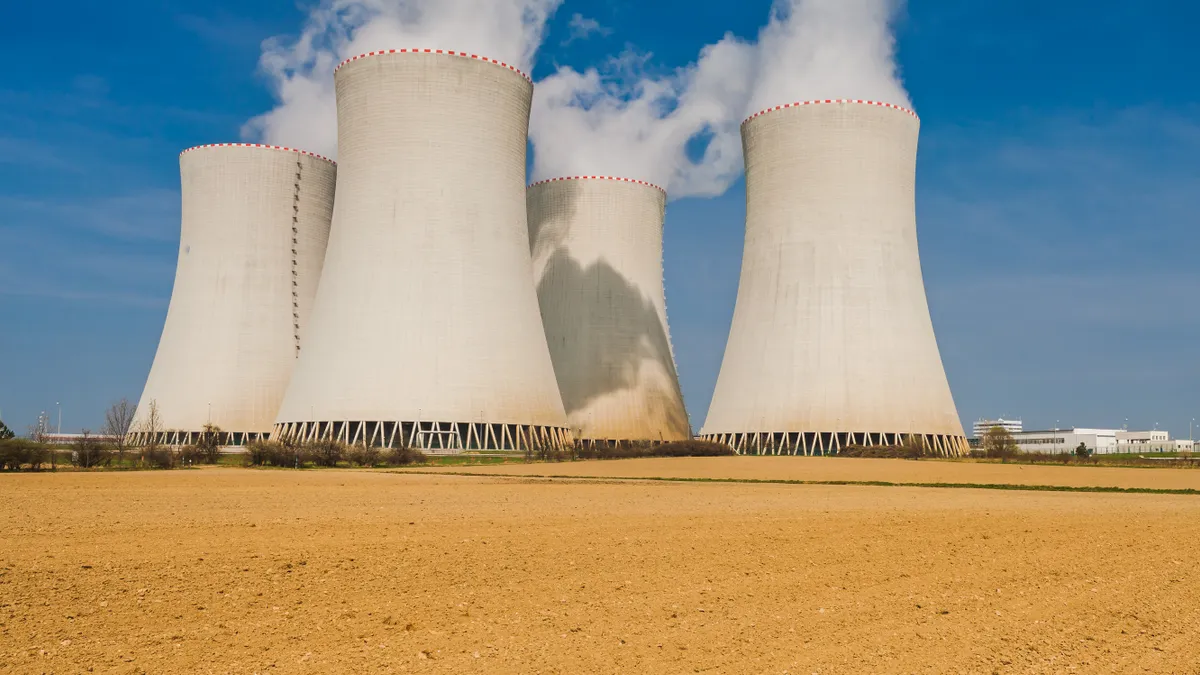Dive Brief:
- Emissions in New England rose slightly in 2015, reversing years of sustained progress following Entergy's decision in 2014 to shutter the Vermont Yankee nuclear plant, RTO Insider reports.
- Vermont Yankee accounted for 4% of New England's total electric generation and more than 70% of generation in Vermont.
- The ISO New England in an annual environmental impact reports that as a result of the lost carbon-free generation, emissions in the region topped 30 million tons last year, up from 28 million tons of carbon dioxide in 2014.
Dive Insight:
Nuclear plants are struggling in some areas, pressured by low natural gas prices and cheap power. But as some states consider how to handle the issue, New England's grid operator offers an early glimpse in what could happen when nuclear generation goes offline.
"Power plant emissions have declined with changes in the fuel mix," the grid operator said in a presentation last week. RTO Insider reports that from 2001 to 2014 that is true, carbon dioxide emissions declined by about 26%. But following the closure of Vermont Yankee, CO2 emissions ticked back up about 7%.
After years of declining emissions, pulling Vermont Yankee offline due to challenging market conditions has caused a spike in the region's emissions. And several other utilities nationwide are considering similar options, including Exelon in Illinois and Entergy in New York.
How bad could it be? Under a worst-case, yet highly-unlikely scenario, moderate think tank Third Way said that if no licenses are extended, nuclear generation would decline precipitously and emissions would revert back to peak 2005 levels.
The firm looked at three scenarios in its research: One in which all nuclear licenses are extended to 60 years; one in which reactors are not extended after their 40 year terms; and a complete phase-out that leaves just the under-construction plants operating in 2025.
Under the firm's second scenario, where reactors retire after their initial 40-year license expires, emissions would be 12.5% higher in 2025 the study concluded.














